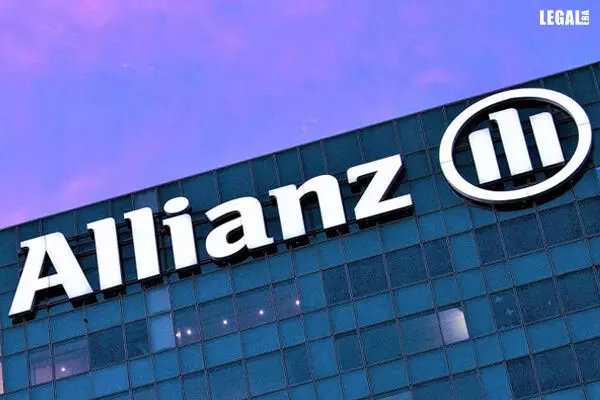- Home
- News
- Articles+
- Aerospace
- Artificial Intelligence
- Agriculture
- Alternate Dispute Resolution
- Arbitration & Mediation
- Banking and Finance
- Bankruptcy
- Book Review
- Bribery & Corruption
- Commercial Litigation
- Competition Law
- Conference Reports
- Consumer Products
- Contract
- Corporate Governance
- Corporate Law
- Covid-19
- Cryptocurrency
- Cybersecurity
- Data Protection
- Defence
- Digital Economy
- E-commerce
- Employment Law
- Energy and Natural Resources
- Entertainment and Sports Law
- Environmental Law
- Environmental, Social, and Governance
- Foreign Direct Investment
- Food and Beverage
- Gaming
- Health Care
- IBC Diaries
- In Focus
- Inclusion & Diversity
- Insurance Law
- Intellectual Property
- International Law
- IP & Tech Era
- Know the Law
- Labour Laws
- Law & Policy and Regulation
- Litigation
- Litigation Funding
- Manufacturing
- Mergers & Acquisitions
- NFTs
- Privacy
- Private Equity
- Project Finance
- Real Estate
- Risk and Compliance
- Student Corner
- Take On Board
- Tax
- Technology Media and Telecom
- Tributes
- Viewpoint
- Zoom In
- Law Firms
- In-House
- Rankings
- E-Magazine
- Legal Era TV
- Events
- Middle East
- Africa
- News
- Articles
- Aerospace
- Artificial Intelligence
- Agriculture
- Alternate Dispute Resolution
- Arbitration & Mediation
- Banking and Finance
- Bankruptcy
- Book Review
- Bribery & Corruption
- Commercial Litigation
- Competition Law
- Conference Reports
- Consumer Products
- Contract
- Corporate Governance
- Corporate Law
- Covid-19
- Cryptocurrency
- Cybersecurity
- Data Protection
- Defence
- Digital Economy
- E-commerce
- Employment Law
- Energy and Natural Resources
- Entertainment and Sports Law
- Environmental Law
- Environmental, Social, and Governance
- Foreign Direct Investment
- Food and Beverage
- Gaming
- Health Care
- IBC Diaries
- In Focus
- Inclusion & Diversity
- Insurance Law
- Intellectual Property
- International Law
- IP & Tech Era
- Know the Law
- Labour Laws
- Law & Policy and Regulation
- Litigation
- Litigation Funding
- Manufacturing
- Mergers & Acquisitions
- NFTs
- Privacy
- Private Equity
- Project Finance
- Real Estate
- Risk and Compliance
- Student Corner
- Take On Board
- Tax
- Technology Media and Telecom
- Tributes
- Viewpoint
- Zoom In
- Law Firms
- In-House
- Rankings
- E-Magazine
- Legal Era TV
- Events
- Middle East
- Africa
EU Eases Antitrust Guidelines on Green Initiatives

EU Eases Antitrust Guidelines on Green Initiatives
The European Union (EU) Commission in its latest development has eased its antitrust guidelines for companies that collaborate together to solve climate problems, in response to concerns about cartel-like green coalitions driving up energy prices.
A significant blow hit the finance sector climate alliance known as the Glasgow Financial Alliance for Net Zero occurred last week when major insurers withdrew from the Net-Zero Insurance Alliance (NZIA) out of concern that they would be accused of violating competition law.
As per the EU commission, from 1st July, it would create a ‘safe harbor’ from prosecution for groups of companies that enter into ‘standardization agreements’ — for example, a boycott of plastics, fossil fuels or steel produced from coal-fired power plants — even if this pushes up prices.
Under the guidelines companies must not make up more than one-fifth of a given market, and must not exchange commercially sensitive information unless necessary, or prevent other companies from joining the agreement.
The EU Commission asserted that its new guidelines are aimed at aiding companies in assessing ‘legitimate’ and ‘genuine’ sustainability co-operation and not ‘disguised cartels with a sustainability ‘veneer.’
The new guidelines attempt to open up the possibility of immunity for companies that come together to align with the Paris climate agreement on limiting global warming to 1.5C above pre industrial levels.
Initiatives whose sole goal is to meet the requirements of international treaties are ‘unlikely to raise competition concerns’ and will fall outside the scope of the EU’s competition regime altogether, according to the guidelines.
In its statement, the Glasgow Financial Alliance for Net Zero welcomed the EU’s decision and encouraged other jurisdictions to ‘follow suit.’
John Denton, secretary-general of the International Chamber of Commerce, said that the EU’s new rules were without doubt very positive.
“The UK competition regulator had been even bolder in creating the protection needed to encourage more businesses to take the leap in collaborating with their competitors to accelerate climate action,” he added.



